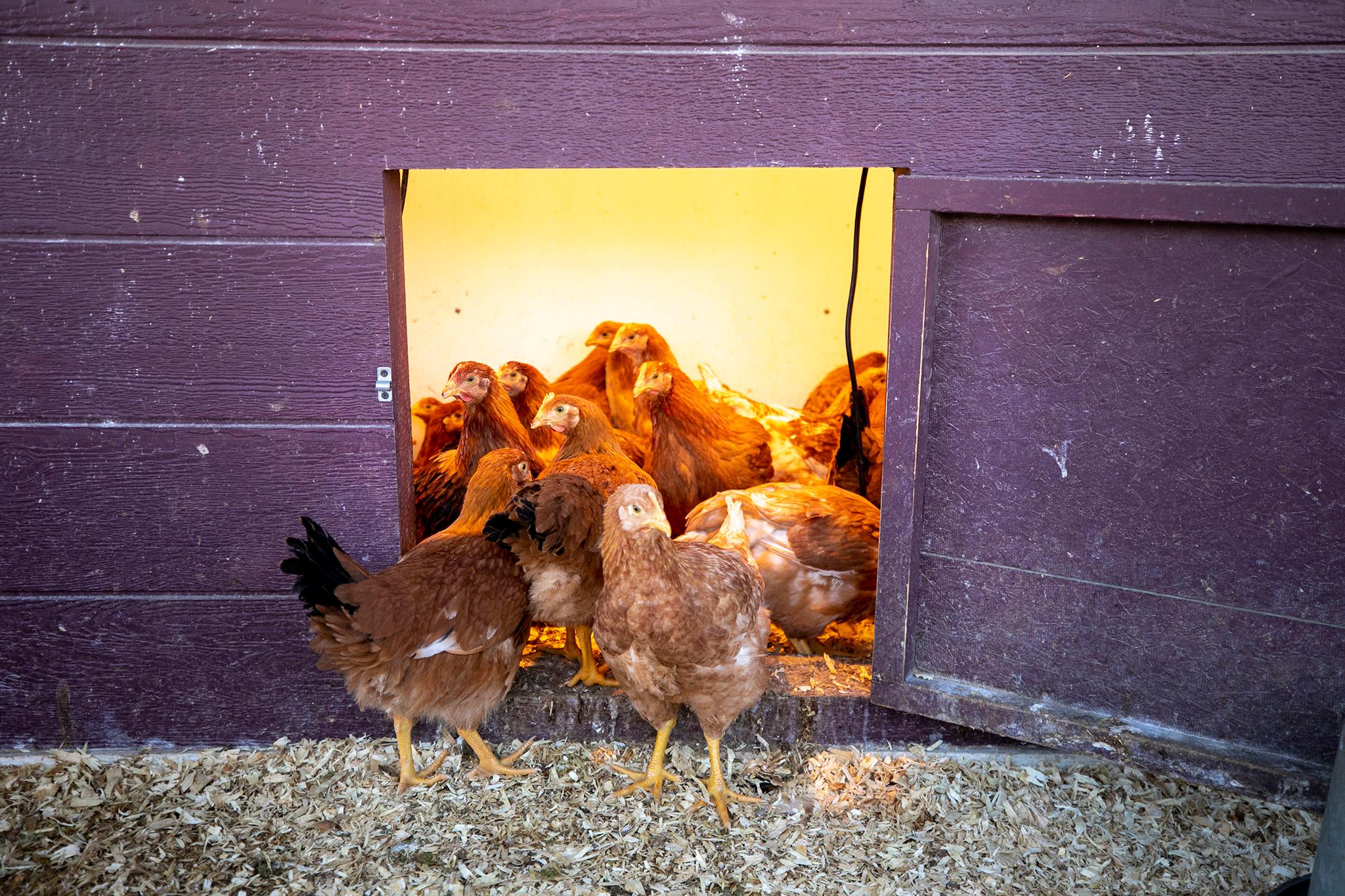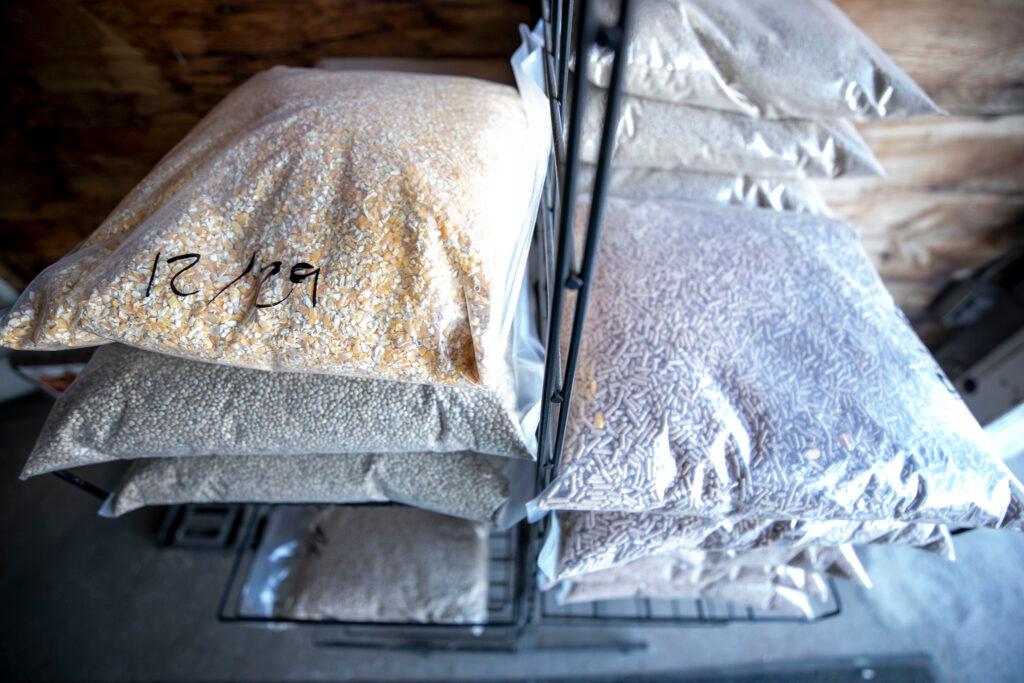
While the cost of eggs skyrockets due to inflation, as well as the avian flu, some Coloradans are considering skipping the grocery store and setting up their own egg farms in their backyards.
Raising backyard chickens is already a popular hobby across Colorado. A Facebook group for backyard chicken owners in the state has over 10,000 members. The community grew a lot in 2020, when people were isolating at the onset of the pandemic.
“It brings you closer to your food system,” said Kia Ruiz, who cares for a backyard flock in Arvada. “You think about the resources you're giving these animals and the care you're giving them because you are their steward. There is a reciprocal relationship.”
The community is seeing a similar growth spurt today, thanks to effects of the avian flu and a new law concerning the sale of non-cage-free eggs. Bekah Russell said her family picked up chicks just a few days ago.
“We've actually kind of bounced the idea back [and forth] for the last several years,” Russell said. “With the legislation that changed at the beginning of this year, I think that was just one of the driving factors where it's only going to get probably tighter on prices and restrictions from here on out.”
Newborn chicks can be found at feed and pet supply stores across Colorado. Some stores, like Wardle Feed & Pet Supply in Wheat Ridge, offer classes to help new owners get acquainted with the lifestyle.
Russell and Ruiz said potential chicken farmers should be aware of their local municipality’s rules about chickens. In Denver, owners have to apply for a food-producing animal permit, which limits backyard flocks to up to eight hens or ducks. Roosters aren’t allowed under the permit.

Additional permits might be required for the coops the chicken will live in.
“Call [your local zoning department] and figure out if you're going to need a permit for your coop,” Russell said. “Because, you'll definitely need one for your chickens, but you might require an additional building permit.”
Ruiz also advised owners to prepare for chicken deaths. The birds are not particularly hardy creatures and predators common in the state will hunt them if their enclosures aren’t secure. And sometimes, the hens might even fight members of their own flock.
“I had been in that situation when we first got them. They were pecking each other, they were younger.” Ruiz said. “Chickens are dinosaurs. When they see red and they see blood, they will just keep attacking.”
How much it costs to raise chickens
The cost of raising a chicken flock can fluctuate, depending on how much you want to spend.
Russell said her initial investment will likely cost around $1,000. That includes buying the chicks, feed, permitting and the materials for building the coop. “After that initial investment, you're going to be spending a lot less over time,” she said.
While startup costs are relatively low, it will take some time to pay off while chicks mature. And even then, egg production might slow at certain parts of the year.
“When we get to winter, we kind of hunker down a little bit. We get a little bit more withdrawn and my birds haven't been producing that much lately,” Ruiz said.
How to keep backyard flocks safe from the avian flu
Backyard flocks, while not as vulnerable, could still contract avian flu due to outside contact. According to the Colorado Department of Agriculture, or CDA, hundreds of backyard birds have been killed by the disease.
“If people have poultry, they really need to be extra cautious right now,” CDA spokesperson Olga Robak said. The agency urges chicken owners to take increased biosecurity measures to keep flocks safe, such as having a dedicated pair of shoes for the backyard or keeping the birds in their enclosure. The U.S. Department of Agriculture has a biosecurity resource center that owners can check for best practices.
Ruiz strictly abides by biosecurity recommendations. My chickens “used to [be] free range and be able to run around in the backyard and stuff. They really haven't done much of that this year,” she said. “[Their enclosure] is a tall space. They're able to jump up on ladders and stuff, but they haven't been having the free range of the backyard like they did last year.”









